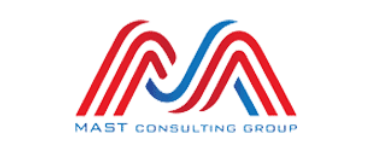Enterprise Risk Management
Empower your organization with MAST’s strategic resilience and proactive risk mitigation.
Enterprise Risk Management
Enterprise Risk Management
Effective enterprise risk management hinges on addressing daily operational risks. Operational Risk Management (ORM) is a focused practice centered on refining operations and mitigating inherent risks. Unlike broader risk disciplines like ERM, which seek to optimize risk-reward balance, ORM is dedicated to control implementation and risk elimination.
We comprehend the criticality of safeguarding your daily operations. Our ORM framework commences by identifying risks and crafting tailored mitigation strategies. Secure Link empowers you to fortify your business against operational uncertainties, ensuring continuity and stability.
Operational Risk Management

Operational Risk Management is to mitigate risks related to the daily operations of an organization. The practice of Operational Risk Management focuses on operations and excludes other risk areas such as strategic risks and financial risks. While other risk disciplines, such as ERM, emphasize optimizing risk appetites to balance risk-taking and potential rewards, ORM processes primarily focus on controls and eliminating risk. The ORM framework starts with risks and deciding on a mitigation scenario.
- Risk Identification
- Risk Assessment
- Measurement and Migration
- Monitoring and Reporting

IT Risk Management

IT risk management, also called “information security risk management,” consists of the policies, procedures, and technologies that a company uses to mitigate threats from malicious actors and reduce information technology vulnerabilities that negatively impact data confidentiality, integrity, and availability.
Typical lifecycle of IT Risk Management:
- Identify Potential Risk
- Risk Analysis
- Risk Categorization
- Risk Migration Plan
- Risk Management Process

Lets Connect With Us
Just send us your questions or concerns by starting a new case and we will give you the help you need.
Compliance Risk Management

With cross border business activities, international laws and country specific regulations, it is an important task to make sure it is in compliance with external and internal regulations and policies in order to protect it from the risks caused by non-compliance. Compliance risk management is the process of understanding and managing compliance with laws and regulations and helping to better manage the risks associated with non-compliance.
MAST has been developing customized framework for the organizations to stay in compliance and assured from any kind of associated risk.

Project Risk Management

Project risk management is the process of identifying, analyzing and responding to any risk that arises over the life cycle of a project to help the project remain on track and meet its goal. Risk management isn’t reactive only; it should be part of the planning process to figure out risk that might happen in the project and how to control that risk if it in fact occurs.
A risk is anything that could potentially impact your project’s timeline, performance or budget. Risks are potentialities, and in a project management context, if they become realities, they then become classified as “issues” that must be addressed. So risk management, then, is the process of identifying, categorizing, prioritizing and planning for risks before they become issues.

Get Free Consultation with Our Expert!
Get a 30-min free consultation from the field expert.

